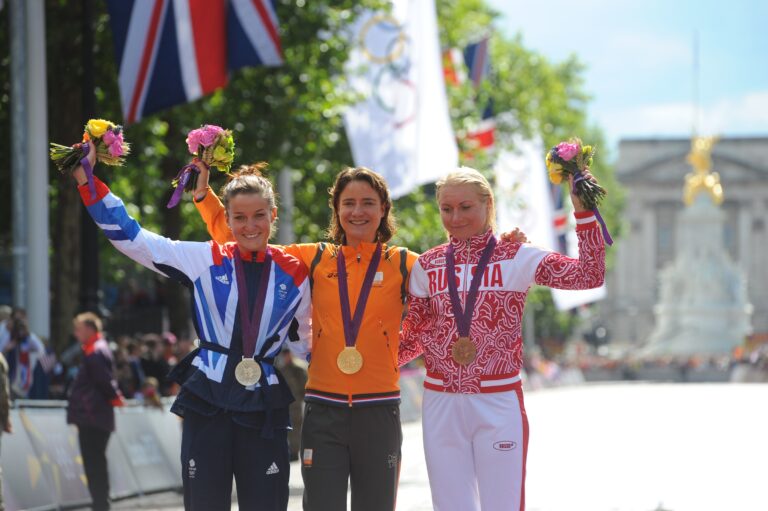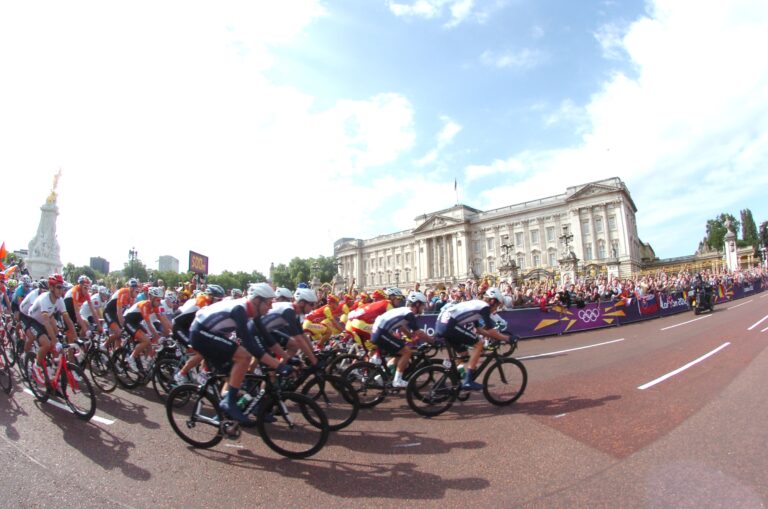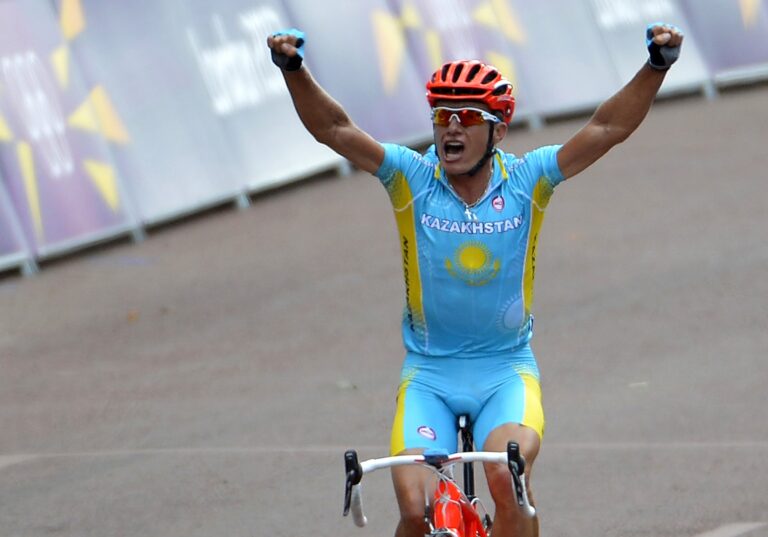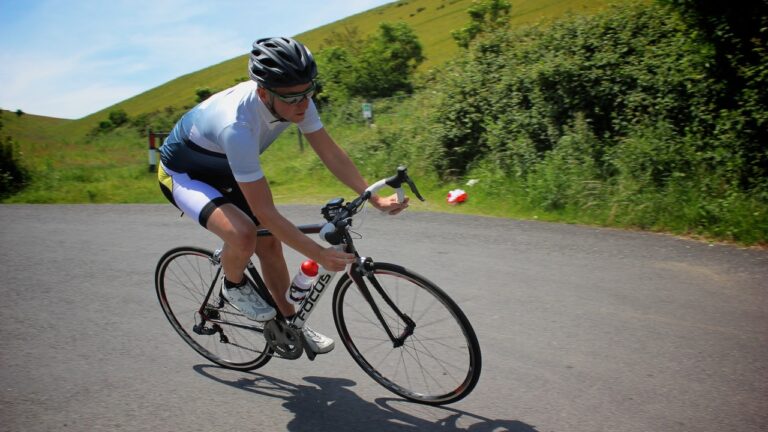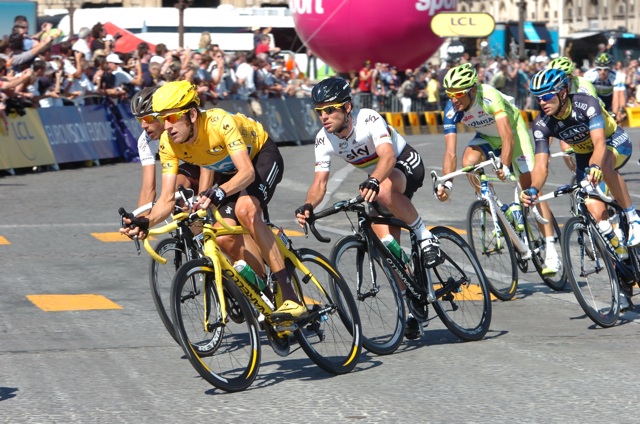Michele Acquarone is one of just five men to have held the title of race director in the 103-year history of the Giro d’Italia.
The managing director of RCS Sport, the media group that stages a portfolio of Italian races of which the Giro is the biggest, but that also includes Milan-San Remo, Tirreno-Adriatico, and the Tour of Lombardy, insists that the races belong to the fans (“they are the owners of our properties”) and has set himself the not inconsiderable challenge of becoming “the man who will bring the Giro d’Italia to the world”.
Acquarone is in London to announce a new partnership between RCS and the sports media group, IMG. The Giro lies at the centre of the partners’ shared ambition to bring cycling to new international markets, one they say will harness new broadcast techniques to make the viewer feel more involved in the action.
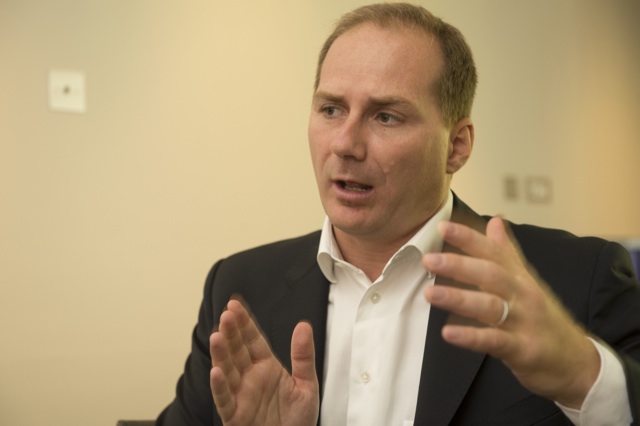
In a frank and wide ranging discussion, Acquarone told RoadCyclingUK he believes the doping era in cycling is over, that a Grand Partenza in London is a “dream” he will pursue when the Olympics have finished, and that a more balanced corsa rosa could encourage more riders to attempt the Giro-Tour double.
While this year’s Giro, Acquarone’s first as race director, has been widely regarded as a success, he is not about to rest on his laurels. He has, he says, a series of question marks around the course, the climbs, the points competition, and the strade bianche sections of the race. As promised, he has turned to the fans for answers to these questions and others. This is not his first recourse to the supporters, the group whose opinion among a wide array of stakeholders (teams, riders, host cities, the UCI) he insists he values most. “It’s impossible that everybody thinks the same way, so if you follow your fans, at the end I’m sure you will be trying to go in the right way,” he says. Stage 20 of this year’s Giro, its Queen stage, was plotted with input from the fans, and delivered, in Thomas De Gendt’s solo ascent of the Stelvio, the performance of the race.
This year’s Giro built to a thrilling climax, with the fight between Ryder Hesjedal (Garmin-Sharp-Barracuda) and Joaquin Rodriguez (Katusha) for the final pink jersey taken to the race-closing time trial, but while Acquarone approves of the finale, he is searching for more drama next year on the journey to the Milan. “The thing I’m considering right now is that the race during the three weeks has to be exciting all the time. This year, we had the climax. Little by little, you had more excitement. Next year, I would like to have much more peaks during the race.”
What is certain is that Acquarone will not resort to a too grueling parcours to artificially engender excitement. The excesses of his predecessor, Angelo Zomegnan, are gone. Acquarone again cites the fans as the leading voices among the clamour for “a more human course”, to quote Alberto Contador (more of whom later). The desire to see their “champions” perform, and to be given sufficient recovery to do so, lay behind 2012’s more restrained challenge, he insists.

Will a kinder Giro encourage more riders to tackle the Giro-Tour double? Yes, says Acquarone, and he will watch closely the performance in this year’s Grande Boucle of Hesjedal, his first champion, who stated before the start in Liege his belief that he can win the Tour. This is not to say that the Giro will be diluted to a preparatory event for the Tour. “The Giro is tough,” says Acquarone, his emphasis on the final word. “It’s in our DNA. We cannot change it.”
Great Britain has become in recent years, if not a cycling super power, then more than arriviste. The derision that greeted Dave Brailsford’s announcement at the inception of Team Sky in 2009 that the nation would produce a home grown Tour winner within five years has been replaced by a grudging respect. Acquarone repeats his recently published admiration for Brailsford’s team and for Cavendish in particular, “a champion” with a respect for the Giro’s traditions and an attitude he says should be taught in schools. The enthusiasm for life on two wheels on these shores seems limitless, and the London Grand Depart of 2007 was widely hailed a success. So could we see a Grand Partenza from the city? “It’s a kind of dream for me,” he admits. No formal approach has yet been made to the city’s authorities in deference to the scale of the task in which they have been engaged since Beijing, but when the closing ceremony has finished, a “good connection” will be sought in London to explore the possibility of a visit from the Giro.
A barely concealed attempt by the US Anti-Doping Agency to overshadow events in Liege by bringing charges against Lance Armstrong on the eve of the Tour seems largely to have failed. Johan Bruyneel was replaced at the final moment as Radioshack-Nissan-Trek’s directeur for the Tour, but this was an event that gained little attention. Far more focus was placed on celebrating the achievements of one of Bruyneel’s riders, Fabian Cancellara, or assessing the prospects for overall victory of another prominent member of the new guard, Bradley Wiggins. “I believe that the doping era is over,” says Acquarone, emphatically, arguing that cycling’s efforts to combat the problem have made it the most controlled of all sports and an example to others. He calls for lifetime bans for a first offence (“one mistake and you’re out”) and insists that the last three Giri were clean. He stands by SaxoBank’s Alberto Contador, whose victory last year was struck from the record by a ruling from the Court of Arbitration for Sport, as the Giro’s champion in 2011. “He’s still the winner of the Giro,” he says. “They say they disqualified him so Scarponi won the Giro, but to us, it was Contador winning the Giro.”

Acquarone has praised Britain’s Team Sky for their commitment to the Giro in sending a strong team this year spearheaded by Cavendish, and lauded the respect shown by the Manxman for the traditions of the race by fighting to Milan for the red jersey of points winner, a contest he lost narrowly to Rodriguez. But while Acquarone has questioned the commitment of some of Sky’s contemporaries in the WorldTour, comparing their efforts unfavourably with that of the Pro Continental teams entered on wild cards to the 2012 Giro, there is no prospect that any of the sport’s 18 top tier teams not being invited to future Giri. Acquarone insists, that, as the organiser of a UCI WorldTour event, he is obliged to invite all 18 teams.
Acquarone says his appointment to the role of race director placed him at a crossroads: able to grasp the easy option of fame and power in is homeland, or to strike out on the more difficult path of increasing the Giro’s popularity abroad. He has chosen the latter. Success will be measured in the growth in popularity of the race. He lists several technocratic methods by which RCS might measure such growth, but he is more animated when discussing the riders, the race, the parcours, and the fans. He will cheer for Italian riders at the Tour, he says, an event he will watch “as a fan”. One suspects there is more than a little of the enthusiast’s passion in his approach when he is engaged in the business of race director of the Giro d’Italia.


